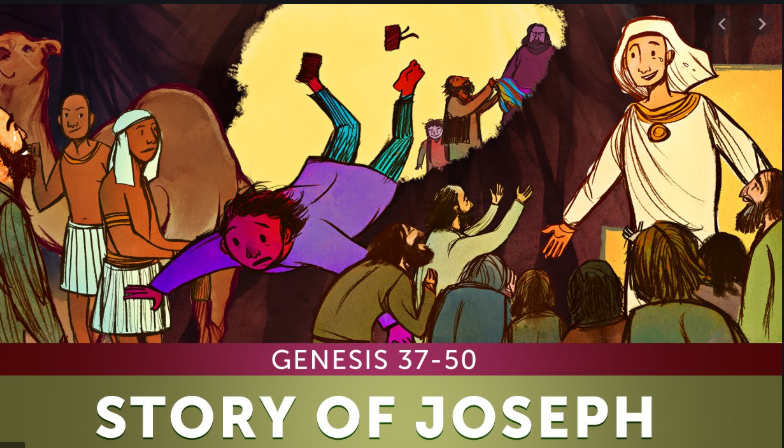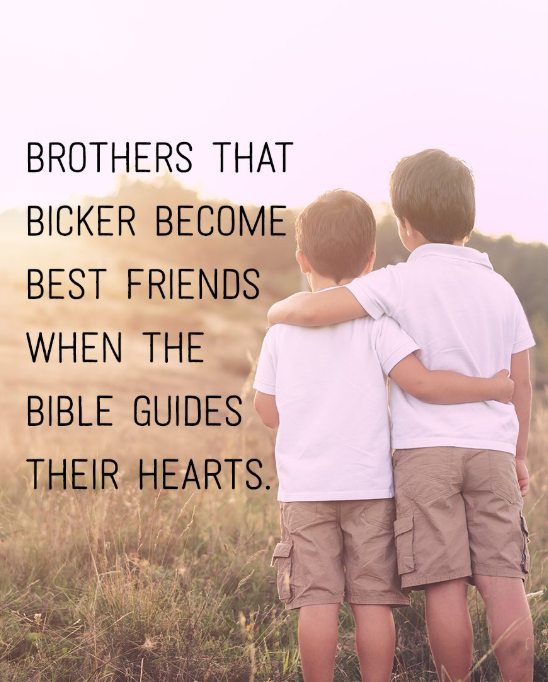The topic of sibling rivalry is a very prevalent subject for most. Sibling rivalry is jealousy, competition and fighting between brothers and sisters. Siblings compare and compete to find their identity and to prove or gain their worth as persons. How much more difficult must it be in this time of isolation, social distancing and quarantine? Many children are suffering because of the social isolation. They miss playing with their friends. They miss being part of their group of schoolmates. Unfortunately, playing with their sibling sometimes isn’t much of a substitute; it just reminds them of what they’re missing, because the sibling can’t hope to replicate their friendships.
It’s sometimes hard to get along with our siblings, and sibling rivalry can go much further than a few arguments. Family life is hard enough in ordinary times, because kids are still learning basic skills to get their needs met without attacking others. Staying home with young kids in the age of coronavirus is extremely difficult. So right now, in the middle of the virus pandemic, it’s not surprising that many homes feel like a pressure cooker. This problem is as old as time itself. We can look at examples of the dynamics of the Old Testament with modern psychology.
Cain vs. Abel
In one of the ultimate examples of sibling rivalry, Cain murdered his own brother, out of anger and jealousy. God had accepted Abel’s offering, but not Cain’s. Instead, God gave Cain a warning about sin. In this case, his sin was an all-consuming jealousy against his brother.
We need to realize we all bring things to the table, and that God wants us to honor one another. The lesson of Cain and Abel is also a lesson in overcoming temptation and sin. Jealousy can lead to some angry and harmful feelings. Being frustrated and even jealous with a sibling for “outshining” you is something a lot of people can relate to. There is a competition for attention from parents, teachers, etc. This phenomenon happens constantly, but less than often becomes violent. Instead of striving to “do right” like God told him, Cain took the “easier road” and tried to eliminate his competition.
If your child is surly to everyone, they’re clearly having a hard time. Children are not immune to the fear infecting our entire society, even if they seem more concerned about that party they’re missing. They may not be able to articulate it, but every child picks up on the tension their parent is feeling, and it makes them anxious.
Talk to your child about their feelings about the virus pandemic. Expressing fears, even unreasonable ones, to a caring witness has a way of making them more manageable. And when we allow ourselves to feel and acknowledge our big emotions, we start to gain conscious control over them, so their power begins to dissipate.
When your children start to argue, stay out of the fight, empower your kids to work things out on their own, with as little parental involvement as possible. Conflict resolution is an important social skill, and if we want our children to learn this skill, we need to let them practice it.
Jacob vs. Esau
Like with Jacob and Esau, it isn’t uncommon for siblings to fight for their parents’ attention and love, as well as how some older siblings have a desire to be more dominant over their younger siblings. In this case, God had made it clear that Esau (the older sibling) would serve Jacob and that Jacob was the chosen one. Yet their father, Isaac, chose to bless Esau and Jacob’s mother arranged for Jacob to receive the blessing by deceit. Esau was clearly his father’s favorite, due to his strength at hunting and Jacob’s greater attachment to his mother. It took over 20 years for the two brothers to reconcile.
In this situation, the siblings’ parents weren’t very helpful in making sure the brothers got along. They were quite culpable in this situation, reminding us that parents have a role to play in tempering sibling rivalry. While Esau said some terrible things, and Jacob played his part in his mother’s deceit, we learn that sibling rivalry and the harsh things we say to our brothers and sisters can be overcome. How parents argue in front of their children communicate lessons in life about how to treat others. Rebekah was underhanded with Esau and had Jacob trick her eldest son and husband. Jacob’s behavior is a consequence of his mother and father’s relationship.
Welcome all emotions. Remember that behind anger you will usually find fear or sadness, so if your child is angry, resist taking the bait. Breathe deeply, stay calm, and invite your child to show you all that upset. The more safety you can create with your tone, the more likely that your child will move past the anger to the tears and fears beneath. Keep reminding yourself that kids pick up on what we’re feeling. Take responsibility for what you’re radiating.

Joseph vs. His Brothers
Another shining example of siblings trying to eliminate their competition out of jealousy and rage is in the story of Joseph. Continuing in his father’s footsteps, Jacob showed a great deal of favoritism toward his son, Joseph, because he was born of Jacob’s favorite wife. Joseph’s brothers clearly saw that their father loved Joseph more, especially after he gave Joseph a multi-colored coat. This created dissension between Joseph and his brothers to where they shunned him and then considered murdering him. They would not even call him their brother. In the end, they sold him into slavery. It didn’t help that Joseph wasn’t all that mature and even gave a bad report of his brothers to their father. When he spoke to his brothers, he somewhat taunted them about his dreams that show they would bow down to him. In the end, though, the brothers were reunited and all was forgiven, though it took many years and much tribulation to get there.
Again, the parent played a part in fueling the fire of sibling rivalry. Still, this story is an example of how it takes two to have a rivalry. The other brothers weren’t very nice to Joseph and blamed him for his father’s mistake. Yet Joseph wasn’t exactly understanding, and he was a bit of a taunter and tattler. Both sides were wrong and didn’t take the time to understand one another.
When we jump in as both the “judge” and the “jury”, our children learn to run to us and to pull us into their chaos, hoping we will take their side and punish the other child. Not only is the whining and “tattling” that follows a huge trigger for me personally, but it’s the exact opposite of the “conflict resolution” you want to reinforce in your children.

Positive Actions
People are decision-making social beings whose main goal in life is to belong. Each of us strives continually to find and maintain a place of significance. Choosing how you belong is a powerful motivation. God places a high value on all the people He has created and does not play favorites based on these features He has formed into each of us. Celebrate the differences of your children. Because they are not the same, we don’t need to behave as if they were. Children will differ in their needs for discipline and instruction. Only the Holy Spirit knows what each of our children need and when they need it. If we are listening to the Spirit within, we will have the wisdom we need for the moment. Realize that disciplining and instructing our children in who God is and how to get their needs met in Him is not a one time event. It takes consistency and persistency. We can faithfully continue instructing through abiding in Jesus and living out of His life. In addition to instruction, we must be lifting our children up in prayer because only the Holy Spirit can take the truth and make it revelation in the hearts of our children.


